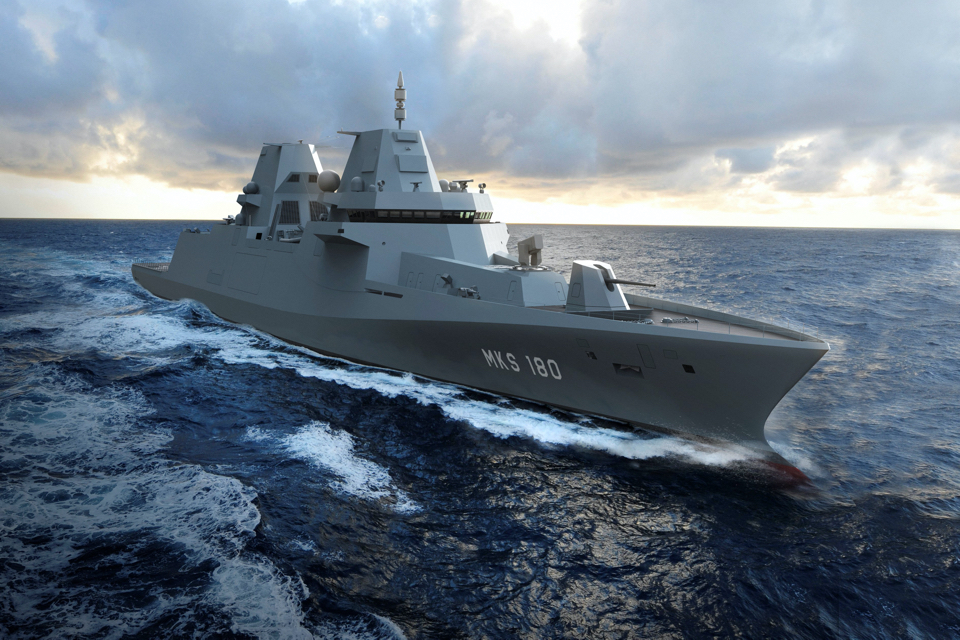The merger between German naval builders German Naval Yards Kiel and Lürssen Group has cleared the way for Dutch Damen Shipyards to proceed with building the four MKS 180 frigates for the German Navy. The German Ministry of Defence has confirmed that Naval Yards has officially dropped its objections to the contract award.
The 5.27-billion euro order was awarded to a consortium led by Damen Schelde Naval Shipbuilding in January this year. Naval Yards questioned the legality of the contract award and was planning to go to court over it. Since Lürssen Group is part of the Damen-led consortium and with Naval Yards planning to join forces with Lürssen, the latter will become part of the project after all. This caused the company to withdraw its complaint.
‘I am very pleased that the award procedure for the multipurpose combat ship 180 can now continue,’ says German Defense Minister Annegret Kramp-Karrenbauer. ‘Before the summer break, I will ask Parliament to release the budget and I am very optimistic that we can conclude a contract for the MKS180 this year.’
‘As far as the MKS180 project is concerned, it is now clear that we, together with our German partners, have emerged as the winner in this European tender,’ says Robin Middel, spokesperson Corporate Affairs at Damen. ‘That is good news. The German Parliament now has the floor to make the final decision. We await this process in confidence.’
Added value in Germany
When the contract was awarded, Damen revealed the ships would be built at Blohm + Voss shipyard in Hamburg and at other shipyard locations of the North German Lürssen Group. Damen intends to build in this way in order to spend around eighty per cent of the total net investment as added value in Germany.
The same applies to the electronic application systems that are supplied by Thales Nederland to its own design. Around seventy per cent of the services will be provided by the German subsidiary of Thales and by other German subcontractors.
Level playing field for European naval construction
‘We are pleased with the consolidation of the German shipping industry under the leadership of the Bremer Lürssen Group. After all, Lürssen, like Damen, is a family-owned private shipbuilding company in Northern Europe,’ adds Middel. ‘As a result, naval construction in Germany is moving towards the same structure as in the Netherlands, with private companies such as Damen as an “Original Equipment Manufacturer” (OEM), together with a chain of suppliers, designing and building high-quality and innovative naval vessels, together with the Ministry of Defence.’
All the advantages that the German government and other stakeholders see for themselves here are already present for the government in the Netherlands. This consolidation also increases the chance of equal cooperation between Northern European countries in the field of naval construction. A development that we can only applaud, in an otherwise unevenly distributed European playing field.
MKS 180
The ships will be approximately 155 metres long (displacement 9000 tonnes) and can be used for various purposes. They must be able to stay in an area on mission for two years. To be able to conduct multiple tasks, the MehrzweckKampfSchiff (MKS) 180 is equipped with different modules for each purpose. One module for anti-piracy missions and one for submarine fighting and more could follow. Of course, its air defence is not modular. Because many systems on board will be automated, the permanent crew will consist of only 110 crew members.








